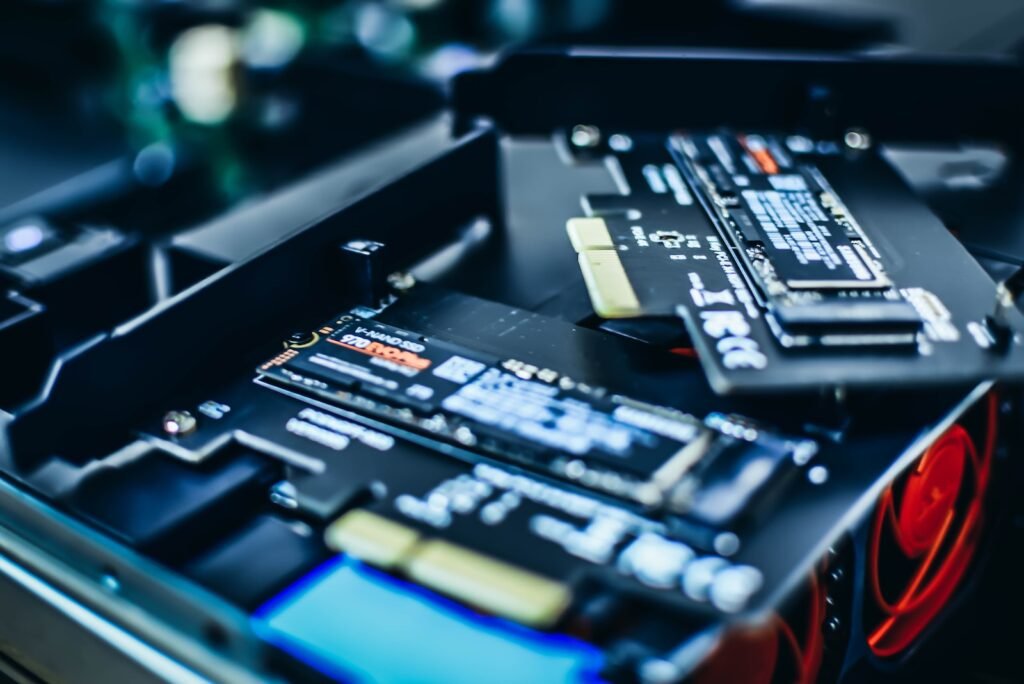
HDD (Hard Disk Drive) and SSD (Solid State Drive) are two types of storage devices used in computers and other electronic devices to store and retrieve data. Although they both serve the same purpose, there are significant differences in their design, technology, and performance.
How do HDDs work?
An HDD is a traditional storage device that uses magnetic disks or platters to store data. The disks spin at high speeds (usually between 5,400 and 7,200 revolutions per minute) and read/write heads move across the disks to access and store data. The read/write head uses a magnetic field to read or write data on the disk surface. The more disks an HDD has, the greater its storage capacity.
Advantages of HDDs:
- More affordable: HDDs are cheaper than SSDs for the same storage capacity.
- High storage capacity: HDDs are available in larger capacities than SSDs.
- Good for long-term storage: HDDs are better suited for storing large files that are not frequently accessed, such as photos, videos, and documents.
So, if you need large amounts of storage for a lower price and don’t mind slower performance, an HDD is a good choice. HDDs are suitable for storing large files such as media files, backups, and archives. They are also a good choice if you need long-term storage that won’t be accessed frequently.
How do SSDs work?
An SSD, on the other hand, is a newer type of storage device that uses NAND-based flash memory to store data. It has no moving parts, and data is stored in microchips. An SSD is made up of a controller and memory chips, and data is stored on these chips using electrical charges. Unlike HDDs, SSDs have no moving parts, which makes them more durable and less prone to damage from physical shocks.
Advantages of SSDs:
- Faster performance: SSDs are much faster than HDDs in terms of read and write speeds, which means that they can access and transfer data more quickly.
- Durable: Since SSDs have no moving parts, they are more resistant to physical damage.
- Energy efficient: SSDs consume less power than HDDs, making them a good choice for laptops and mobile devices.
- Quiet: SSDs generate less noise than HDDs.
So, if you need fast performance, durability, and energy efficiency, an SSD is a better choice. SSDs are ideal for use in laptops, desktops, and mobile devices, where fast boot times, quick application launches, and fast data transfer speeds are essential. They are also a good choice for gamers and video editors who need fast storage to support their high-performance systems.
In conclusion, both HDDs and SSDs have their strengths and weaknesses. HDDs are cheaper and offer more storage, while SSDs are faster, more durable, and more energy-efficient. When deciding between the two, consider your budget, storage needs, and performance requirements to make the best choice for your needs.










































